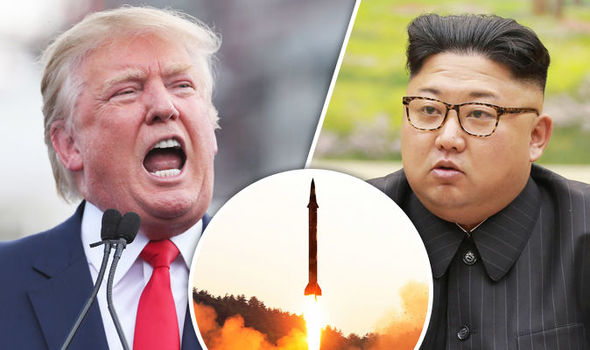President Trump deserves the Nobel Peace Prize for North Korea diplomacy: James Robbins

A year ago, the prospect of President Trump being considered for a Nobel Peace Prize would have sent his critics’ heads spinning. Now, if all goes well in U.S. negotiations with North Korea, Trump should be the odds-on favorite for an award he will have truly earned.
The stunning moves towards peace on the Korean Peninsula have generated the Nobel buzz. Resolving the almost seven-decade division — one of the last major vestiges of the Cold War — would be an epochal international event. South Korea’s former president Kim Dae Jung was awarded the peace prize in 2000 for simply beginning the process of détente with North Korea.
Now, the historic summit between South Korean President Moon Jae-in and North Korean leader Kim Jong Un alone has the makings of a peace prize-worthy effort, because it effectively ended a war that had been frozen since the 1950s. But President Moon went out of his way to give credit to Trump for setting the stage for the meeting. “President Trump should win the Nobel Peace Prize. All we need is to bring peace,” Moon said, according to the Blue House, Seoul’s equivalent of the White House.
Trump indeed deserves much of the credit for the breakthrough in relations. Trump was the first president to explicitly link U.S. trade policy with China to progress on the Korean Peninsula. Previous presidents had compartmentalized these issues, but Trump knows that the art of the deal is based on leverage. North Korea’s economy (such as it is) depends on China, and China’s well-being depends on trade with the United States. Beijing has much less interest in defending the right of its erratic Pyongyang ally to develop highly destabilizing nuclear-capable ballistic missiles than it does in maintaining its global markets. This reality was no doubt the framework for discussions in March between Kim and Chinese President Xi Jinping, when Beijing told Pyongyang that the party was over.
Trump also made clear the potential consequences of not moving towards peace. Last year saw a series of threats and counter-threats as Kim took the measure of our new president, to see whether Trump was as tough as advertised. North Korea conducted several provocative nuclear and missile tests. Pyongyang threatened to launch missiles towards Hawaii or the U.S. mainland, and said it had the right to down American strategic bombers even outside North Korea’s airspace. In response, Trump said that any North Korean acts of war would “be met with fire and fury and frankly power, the likes of which this world has never seen before.” Defense Secretary James Mattis laconically noted that if North Korea fired missiles towards the United States it would be “game on,” with all that implied.
Panicky pundits fretted about the possibility (if not certainty) of open war breaking out with North Korea. But as the Romans said, si vis pacem, para bellum — if you want peace, prepare for war. A peace through strength strategy only works when the adversary knows you mean business. And Trump had a “bigger button.”
The Nobel buzz also comes in the context of the award given to former president Barack Obama in his 2009 rookie year, with the hope he would make “extraordinary efforts to strengthen international diplomacy and cooperation between peoples.” But taking Obama’s foreign policy record as a whole, the Nobel committee made a down payment on a house that was never built. The reputation of the Peace Prize took a blow then, but it can be redeemed by recognizing the achievements of Obama’s successor.
Trump, leading from the front rather than from behind, is demonstrating that the United States can remain “the one indispensable nation in world affairs” only if it behaves like it.
There is much yet to be done, of course. The outcome of the upcoming Trump/Kim summit will determine whether this prospective peace is durable or a mirage. But if all goes well and peace is finally at hand, a Nobel Prize for Trump would be a proper and fitting tribute to his remarkable achievement.
James S. Robbins, a member of USA TODAY’s Board of Contributors and author of This Time We Win: Revisiting the Tet Offensive, has taught at the National Defense University and the Marine Corps University and served as a special assistant in the office of the secretary of Defense in the George W. Bush administration. Follow him on Twitter: @James_Robbins



Pingback: President Trump deserves the Nobel Peace Prize for North Korea diplomacy: James Robbins – USSA News | The Tea Party's Front Page